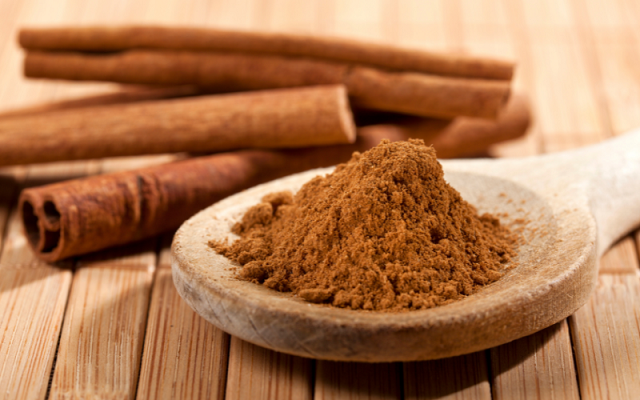Since centuries ago, the cinnamon is highly valued in cooking for its captivating aroma and warm flavor, and is widely used for its numerous health benefits. It is a spice derived from the inner bark of certain trees in the Lauraceae family, specifically from trees of the genus Cinnamomum.
Ceylon cinnamon is the most appreciated due to its delicate aroma and sweet, slightly lemony flavor.
Most varieties of cinnamon offer a range of beneficial properties for the body and mind. We will highlight the multiple benefits that consuming cinnamon can bring, as it proves to be much more than just a simple kitchen spice...
The history of cinnamon: an ancient spice
The history of cinnamon dates back thousands of years. Its earliest traces were in ancient Egypt, where it was used for the embalming of pharaohs. Later, the Romans appreciated it for its exotic aromas and medicinal properties. It reached its peak during the Age of Exploration, when Europeans sailed to the East in search of its precious spices.
Cinnamon, and more specifically the Ceylon cinnamon It seems like your message is incomplete. Could you please provide the full text you would like translated from French to English?Cinnamomum verum), originates from Sri Lanka (formerly known as Ceylon). This variety is rarer but highly appreciated because it is more aromatic and has a subtler flavor. This is why Biovie has chosen to highlight this exceptional selection. By choosing our Ceylon cinnamon, you ensure to savor the essence of this exquisite spice, bringing a delicate and refined touch to all your culinary preparations, as well as a dose of vitality thanks to its exceptional benefits.
The second variety that can be found on the market is the Cassia cinnamon It seems like your message is incomplete. Could you please provide the full text you would like translated from French to English?Cinnamomum cassia) which is also known as "Chinese cinnamon." This variety is mainly produced in China, Indonesia, and Vietnam. Its distinctive feature is its stronger and spicier flavor, with warm and sweet notes. It is more common and less expensive than Ceylon cinnamon.
Cinnamon comes in the form of thin rolled strips, known as "sticks," which are made from the peeled, dried, and delicately layered inner bark. This is the format we have chosen to present our Ceylon cinnamon because it helps preserve its aromas for a longer time. You can grind these sticks into powder just before use to fully enjoy their aromas.
The benefits of cinnamon on health:
Cinnamon has been recognized for centuries for its numerous health benefits. The active compounds it contains give it unique medicinal properties. Here are some of the most well-known health benefits of cinnamon:
1. Regulation of blood sugar:
Scientific studies have shown that cinnamon can help regulate blood sugar levels, and this:
- By improving insulin sensitivity, this could help lower blood sugar levels and reduce the risk of hyperglycemia.
- By reducing insulin resistance, a common problem in people with type 2 diabetes.
- Certain compounds found in cinnamon inhibit the activity of the enzyme alpha-glucosidase, which breaks down complex carbohydrates into simple sugars. By slowing down this carbohydrate digestion process, cinnamon can help contribute to a slower release of glucose into the blood after meals.
2. Anti-inflammatory properties:
Due to its antioxidant action attributed to its high polyphenol content, cinnamon can help neutralize free radicals, which are molecules involved in the inflammatory process. By reducing oxidative damage, cinnamon can help alleviate inflammation associated with these processes, thereby contributing to the prevention of various chronic diseases and promoting optimal health.
3. Antimicrobial effects:
The compounds present in cinnamon have shown antimicrobial properties, which means they can help combat harmful bacteria, viruses, and fungi. Therefore, cinnamon can help reduce infections and strengthen the immune system.
4. Heart health:
Cinnamon can be beneficial for cardiovascular health by reducing total cholesterol and LDL cholesterol (which is the bad cholesterol) in the blood, which is associated with an increased risk of cardiovascular diseases. Triglycerides can also increase the risk of heart diseases when present in high quantities; cinnamon can help improve heart health by reducing the levels of these fats.
5. Neuroprotective effects:
Cinnamon has the ability to protect nerve cells and promote brain health.
- Thanks to its anti-inflammatory properties, cinnamon can help reduce inflammation in the brain, such as chronic inflammation that is often associated with neurodegenerative diseases like Alzheimer's disease and Parkinson's disease.
- It can protect nerve cells from programmed cell death, or apoptosis, which can be triggered by various stress factors.
- Cinnamon could have beneficial effects on cognitive function, including memory, learning, and attention, due to its ability to improve blood circulation in the brain and promote communication between nerve cells.
6. Digestive support:
Cinnamon is often used to relieve digestive issues such as bloating, gas, and indigestion, thereby providing digestive comfort. It can also help promote intestinal health by acting as an antimicrobial agent, inhibiting the growth of pathogenic bacteria in the digestive tract, which can contribute to the balance of intestinal flora and the prevention of gastrointestinal infections. Additionally, cinnamon is a source of fiber, which can also support digestive health by promoting intestinal transit and nourishing beneficial gut bacteria.
How to use cinnamon in daily diet ?
Cinnamon is very versatile and can be used in many ways in your daily diet and even in your raw cuisine. Here are some ideas:
- In hot beverages such as the coffee, tea or hot chocolate for a warm and spicy flavor. You can even add it to your cappuccino for an extra aromatic touch.
- In cold drinks such as theIt seems like there might be a typo or an incomplete text. The letter "s" on its own doesn't form a complete word or sentence in French. Could you please provide more context or the full text you would like translated? smoothies, milkshakes, and cocktails.
- In cereals, oatmeal, and smoothie bowls.
- In desserts and cakes because of the cinnamon pairs particularly well with cooked fruits and bakery products.
- Cinnamon can also be used in savory dishes to add depth and warmth, such as dhals, pasta sauces, marinades, and quinoa-based dishes. It pairs perfectly with carrots !
- In sauces and dressings for an original and unexpected flavor.
By incorporating cinnamon into your daily cooking, you can add a warm and spicy flavor dimension to your favorite sweet and savory dishes, while also benefiting from its numerous therapeutic health properties. Here is a simple and delicious vegan recipe with cinnamon that we have prepared for you: The Sweet granola !
Ingredients:
- 300 g of nuts and seeds (you can also try our mix of dehydrated sprouted seedsIt seems like your message is incomplete. Could you please provide the text you would like translated from French to English?
- 50 g of sliced tiger nut
- 60 g of honey
- 5 g of cinnamon
- 1 pear
- 1 banana
Instructions:
- Soak the nuts and seeds overnight.
- Coarsely mix the nuts using the pulse function of a food processor with an S-blade.
- Cut a pear and a banana into small dice.
- Mix all the ingredients and dehydrate at 42°C for 24 hours.
Recipe from our ebook "Winter in full forceIt appears that the text you provided is just a period ("."). There is no content to translate. If you have any other text you would like translated, please provide it and I'll be happy to help! .
Enjoy your meal !

Cinnamon in traditional and modern medicine:
Cinnamon has been used in medicine for millennia, and its use continues to generate interest in modern medicine to this day.
In traditional medicines:
- Cinnamon has been used for centuries in Ayurvedic medicine to treat digestive issues, respiratory diseases, and inflammations.
- In Chinese medicine, cinnamon is often prescribed to stimulate blood circulation, regulate digestion, and strengthen the immune system.
- Medieval Arab physicians once used cinnamon to treat respiratory conditions, digestive disorders, and infections.
In modern medicine:
- Modern studies have confirmed that cinnamon can play a role in managing diabetes by helping to regulate blood sugar levels and improving insulin sensitivity.
- Modern research has highlighted the anti-inflammatory and antimicrobial properties of cinnamon, as well as its contribution to heart health by improving vascular function.
- In modern medicine, cinnamon is generally available in the form of dietary supplements, standardized extracts, and essential oils, in addition to its traditional use as a culinary spice. However, research on cinnamon is still ongoing, and its use for medical purposes should be approached with caution, taking individual needs into account.
Precautions and contraindications for cinnamon:
Cinnamon is generally a safe spice, but it is important to consider certain precautions and contraindications when using it:
Allergies: Some people may be allergic to cinnamon and symptoms such as skin rashes, itching, breathing difficulties, or swelling may appear after consuming cinnamon.
Skin irritations: One must be careful with the direct application of cinnamon on the skin because it can sometimes cause irritation in people who are sensitive or allergic to cinnamon. This is why it is necessary to perform a patch test with cinnamon essential oil on a small area of the skin and wait 24 hours to see if any reaction appears on your body.
Drug interactions: Cinnamon can interact with certain medications such as anticoagulants, diabetes medications, and blood pressure medications.
Pregnancy and breastfeeding: It is recommended that pregnant or breastfeeding women be cautious with cinnamon because it could potentially be harmful due to its stimulating properties and its potential to cause uterine contractions.
Excessive quantities: Excessive consumption of cinnamon can lead to adverse effects, such as gastrointestinal irritations, heart palpitations, headaches, and allergic reactions.
Furthermore, it is important to note that the Cassia cinnamon variety, which has a higher coumarin content compared to Ceylon cinnamon, presents an increased risk of hepatotoxicity, potentially damaging the liver in the most severe cases, especially in individuals with pre-existing liver conditions. It is therefore essential to follow the dosage recommendations and not exceed the recommended amounts to avoid such adverse effects.
Conclusion:
In conclusion, cinnamon is a valuable spice with a long history of use across civilizations. Widely used in traditional medicine, it is now a focal point for various researchers in modern medicine due to its numerous health benefits. Its role in blood sugar regulation, its anti-inflammatory potential, its antioxidant and antimicrobial properties, and its positive impact on cardiovascular health make it a valuable ingredient in a balanced diet, thereby contributing to the promotion of good health.
While being careful not to consume it in excess, it is an excellent choice in cooking that warms you up in winter and makes you travel in summer !









